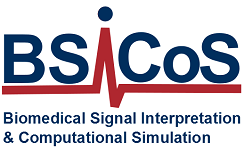-
Proyectos
HEalthcare and MOnitoring DIgitalization in Chronic Illness management: application to multiple sclerosis and depression – TED2021-131106B-I00
Fecha de inicio
2022
Fecha de finalización
2024
Coordinador
Raquel Bailón & Jordi Aguiló
Funding agency
Agencia Estatal de Investigación
Chronic diseases, especially those related to central nervous system (CNS) represent an unprecedented challenge for healthcare systems, since its course is dynamic with increasingly high care costs. A change in paradigm towards early diagnosis and intervention to prevent adverse outcomes would be beneficial for patients, carers as well as healthcare economy. Thanks to the blossom of smartphone sensors and wearable devices during the last years, remote monitoring and digitalization of healthcare emerge as potential solutions which may allow the early identification and consequent treatment of disease deterioration or relapse. In this context, the RADAR-CNS (Remote Assessment of Disease and Relapse-Central Nervous System) project, funded in IMI2-Call3 and lead by Kings College London from academia and by Janssen Pharmaceutical from EFPIA, created an infrastructure that allowed the remote monitoring of patients with depression, multiple sclerosis and epilepsy (https://www.radar-cns.org/). This project resulted in large multicenter cohorts in these three main CNS diseases, with patients followed up and remotely monitored for two years.
In this project, RADAR-CNS data will be exploited and expanded with new data with the goal of providing digital biomarkers which allow the identification of early signs of relapse and disease deterioration of patients with multiple sclerosis (MS) and depression (MDD). This will enable early intervention and treatment, improving patients health and quality of life as well as reducing healthcare system costs. It will also increase patients awareness of their health and empower them to self-manage the disease.
The project’s main goal is to advance towards health digitalization in MS and MDD patient monitoring. In both chronic diseases, two different approaches will be considered: i) a gross but continuous monitoring using a wrist-worn device which provides 24/7 data and allows for the estimation digital biomarkers reflecting changes in trends in heart rate and activity data during daily life induced by changes in sleep, mood, behaviour and cognition; and ii) a finer but occasional monitoring using physiological signals recorded both at clinical visits and at home, which allows a reliable and noninvasive assessment of autonomic nervous system (ANS) biomarkers, based on the hypothesis that ANS dysfunction plays a key role in the development and progression both of MS and MDD disorders.
